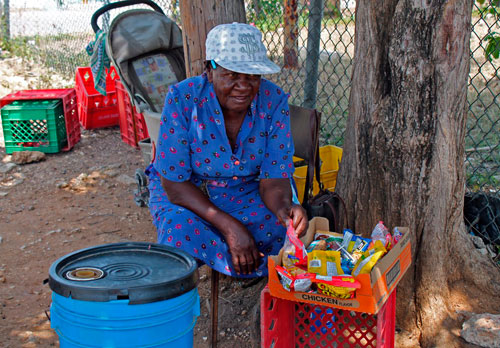Confronted with overall national debt that has more than doubled in the 10 years of the last government, Barbados Prime Minister Mia Mottley wasted no time in suspending liability payments and calling in the International Monetary Fund.
Following a meeting with leaders of the trade unions and the private sector, Mottley announced one week after winning elections that the nation’s finances are so dire that it cannot stay afloat while meeting obligations.
“When the last administration took over they inherited a debt of about $6 billion (Bds $1 = 50 cents US)…they have left us with a debt level, when arrears are added, of over $15 billion. Public debt as a proportion of our national income is being regarded as high as 171 percent of GDP,” Mottley said.
The Prime Minister’s revelation of this humongous debt obligation to local and overseas entities dwarfs the $1.7 billion current affairs arrears owed as of September 30, and which — while expected to grow when updated — forms part of the overall account of indebtedness.
“From today, we are suspending payments due on debts owed to external commercial creditors,” Mottley announced in a nationally televised statement flanked by union and private sector representative in a symbolic show of support of the island’s new leader.
“Similarly, we will endeavor to make scheduled domestic interest payments. However, domestic creditors will be asked to roll over principal maturities until we reach a restructuring agreement.
“The truth is our debt has been unsustainable territory for some time. The arrears represent an effective default by the previous government to Barbadians.”
The new government has an ‘Economic Recovery and Transformation Plan’ that she dubbed ‘a partnership for progress’ explaining, “it is intended to initially provide balance of payments support from the International Monetary Fund and the Government has invited a mission from the IMF to visit Bridgetown.”
That IMF team arrived on the island Tuesday, and it is notable that Mottley said she is seeking ‘balance of payments support,’ which usually relates to payments of external debts over a short term, from that international body, and not a full restructuring program.
The Nation newspaper has reported that government would be seeking a one percent interest rate on these balance of payments loan obtained through the IMF, and is hoping that negotiations for the special financial advance would take six to eight months.
That rate conflicts drastically with the 7.5 to 8.5 percent interest condition under which the previous government borrowed U.S.$225 million from Credit Suisse in 2013, and for which a payment of a reported US$60 million due this month.
The new Prime Minister’s announcements received support from the largest indigenous Caribbean corporation, Sagicor Financial, whose chief operating officer, Ravi Rambarran, said the decisions on debt management so far are ‘positive’ and that the IMF’s work in Jamaica showed it was “no longer the bogeyman.”
“We view that as a welcome development. It demonstrates recognition of the problem, acceptance of the problem, and that you are now willing to engage on a path towards fiscal sustainability.
“The IMF playbook has changed considerably; they have had quite a successful programme in Jamaica; Jamaica has become the poster child of the IMF,” he said, adding “so overall it is a positive development and it demonstrates to us the seriousness and the intent to tackle the problem head-on. That is a positive, it brings clarity.”

























